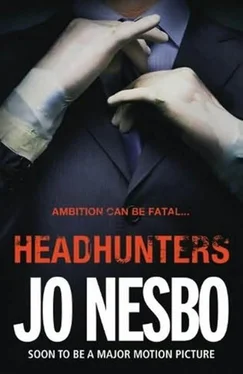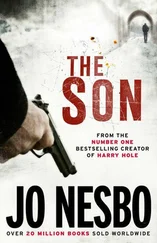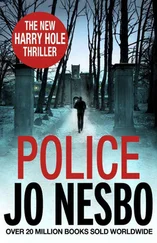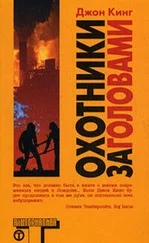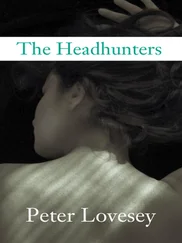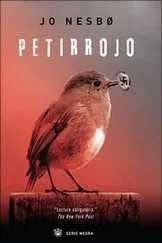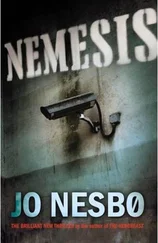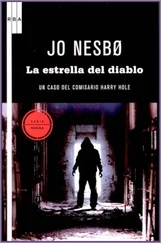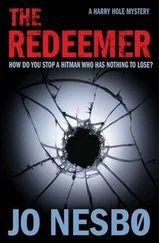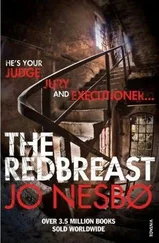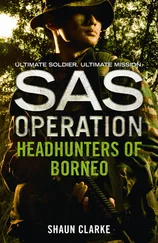‘Logical,’ Dybwad nodded, bending forward, egging him on.
‘So Greve realises the only way out is to rescue Kjikerud from the police before the questioning starts. Or…’
Sperre didn’t need Dybwad’s discreetly raised forefinger to tell him that this was the right place for another little pause.
‘… or kill him in the process.’
The TV signals seemed to crackle in the studio air, which was so dry from the stage lighting that it could catch fire at any point. Sperre went on.
‘So Greve starts searching for a car he can borrow. And in a car park he comes across an abandoned truck with a trailer. With his background in a Dutch counter-terrorism unit he knows how to start an engine. He still has the police radio with him and has obviously studied the map to be clear which route the police car transporting Kjikerud will take from the hospital to Elverum. He waits for them in the truck on a side road…’
Dybwad launched himself into the story with a dramatically raised finger. ‘And then the greatest tragedy in the whole case takes place.’
‘Yes,’ Sperre said, eyes downcast.
‘I know this is painful for you, Brede,’ Dybwad said.
Brede. Christian name. That was the cue.
‘Close-up of Sperre now,’ the producer said in the earplug to camera 1.
Sperre took a deep breath. ‘Four good policemen were killed in the collision that followed, one of them a close Kripos colleague of mine, Joar Sunded.’
They had zoomed in with such care that the average viewer wouldn’t have noticed that Sperre’s face now took up a slightly bigger part of the screen; they only perceived it as a tenser, more intimate atmosphere, a feeling of getting inside this visibly moved stalwart policeman.
‘The police car is hurled over a crash barrier and disappears beneath the trees right by the river,’ Dybwad went on. ‘But, miraculously, Ove Kjikerud survives.’
‘Yes.’ Sperre has recovered. ‘He clambers out of the wreck, either on his own or with Greve’s help. After dumping the truck they get into Greve’s car and go back to Oslo. When the police later find the patrol car and one body is missing they believe it’s landed in the river. Furthermore, Kjikerud has dressed one of the police bodies to look like himself and for a while this creates confusion about who has survived.’
‘But even though Greve and Kjikerud are safe for the moment their paranoia is in full bloom, isn’t it?’
‘Yes. Kjikerud is aware that when Greve drove the truck into the patrol car, he had to be indifferent as to whether Kjikerud lived or died. And Kjikerud has realised that his life is in danger; Greve has at least two good reasons to get rid of him. The first because he witnessed the murder of Aa, the second because Greve wouldn’t have to share the proceeds from the Rubens painting. He knows that Greve will strike whenever the opportunity offers itself again.’
Dybwad leaned forward with excitement. ‘And that’s where we move into the last act of the drama. They have arrived in Oslo and Kjikerud has gone back to his house. But not to relax. He knows he has to make the first move – eat or be eaten. Then from his huge arsenal of weapons he takes out a little black pistol, a… a…’
‘Rohrbaugh R9,’ Sperre said. ‘Nine millimetres, semiautomatic, six bullets in the magaz-’
And he takes it with him to where he believes Clas Greve is staying. At his lover’s. Right?’
‘We’re not sure about the relationship Greve had with this woman, but we do know that they were in regular contact, that they met and that Greve’s fingerprints have been found in her bedroom, among other places.’
‘So Kjikerud goes to the lover’s address and is standing there with the weapon when she opens the door,’ Dybwad said. ‘She lets him into the hall where Kjikerud shoots her. Then he searches the apartment for Greve, but he isn’t there. Kjikerud puts the body of the woman into her bed and goes back to his own place. He makes sure he has the weapon to hand wherever he is, even in bed. And then Greve appears…’
‘Yes. We don’t know how he gets in, perhaps he picks the lock. At any rate he is not aware he has activated the soundless alarm when entering. But that sets off the CCTV cameras in the house.’
‘Which means that the police have pictures of what happens from now on, the final showdown between these two criminals. And for those who do not have the stomach to see this on the Internet, could you tell us briefly what happens?’
‘They start shooting at each other. Greve fires off two shots first, with his Glock 17. Amazingly enough, he misses with both.’
‘Amazing?’
‘At such a close range, yes. Greve was a trained commando after all.’
‘So he hits the wall instead?’
‘No.’
‘No?’
‘No, there were no bullets in the wall by the bed head board. He hits the win-ow. That is, he doesn’t hit the window, either, because it’s wide open. His shots go outside.’
‘Outside? How do you know that?’
‘Because we’ve found the bullets outside.’
‘Oh?’
‘In the forest behind the house. In a bird house for owls hanging from a tree trunk.’ Sperre gave a wry grin, the way men do when they think they’re underplaying a success story.
‘I see. And then?’
‘Kjikerud starts shooting back with an Uzi machine gun which he has in his bed. As we can see on the film, the bullets hit Greve in the groin and the stomach. He drops his pistol, but picks it up again and manages to fire off a third and final shot. The bullet hits Kjikerud in the forehead above his right eye. It causes massive damage to the brain. But it’s not how people imagine from films – that every shot to the head inflicts instant death. You see, Kjikerud manages to fire a final salvo before dying. And this kills Clas Greve.’
A long silence followed. The producer probably raised one finger to Dybwad, the signal that there was one minute left on the schedule and it was time to summarise and round off the news item.
Odd G. Dybwad leaned back in the chair, more relaxed now. ‘So Kripos has never been in any doubt that this was how it all happened?’
‘No,’ said Sperre, fixing his gaze on Dybwad. Then he splayed his arms. ‘But it goes without saying that there will always be some uncertainty with regard to details. And a little confusion. For instance, the pathologist who was at the crime scene felt that the temperature of Kjikerud’s body had fallen with surprising rapidity. On the basis of the usual charts and figures he would have put the time of death at least twenty-four hours earlier. But then the police officers at the scene pointed out that the window behind the bed had been open when they arrived. And this was, as you remember, the first day of sub-zero temperatures in Oslo. This kind of uncertainty exists all the time, it is part and parcel of our work.’
‘Yes, for even though you can’t see Kjikerud on the recordings, the bullet in Kjikerud’s head…’
‘Came from the Glock that Greve fired, yes.’ Sperre smiled again. ‘The forensic evidence is what the press likes to call “overwhelming”.’
Dybwad gave a befitting beam as he shuffled the papers together in front of him, signalling that things were being rounded up. All that was left to do now was to thank Brede Sperre, stare straight into the lens of camera I and see to the evening’s other item: another round of agricultural subsidies. But he stopped, his mouth half open, his eyes flicked down. A message in his ear? Something he had forgotten?
‘Just one last thing, Inspector,’ Dybwad said, calm, deft, experienced. ‘What do you actually know about the woman who was shot?’
Sperre hunched his shoulders. ‘Not a lot. As I said, we believe she was Greve’s lover. One of the neighbours says he saw Greve come and go. She doesn’t have a criminal record, but we have found out via Interpol that she was involved in a drugs case many years ago when she and her pa-ents lived in Suriname. She was the girlfriend of one of the drug barons there, but when he was killed by a Dutch commando unit she helped them to reel in the rest of the gang.’
Читать дальше
